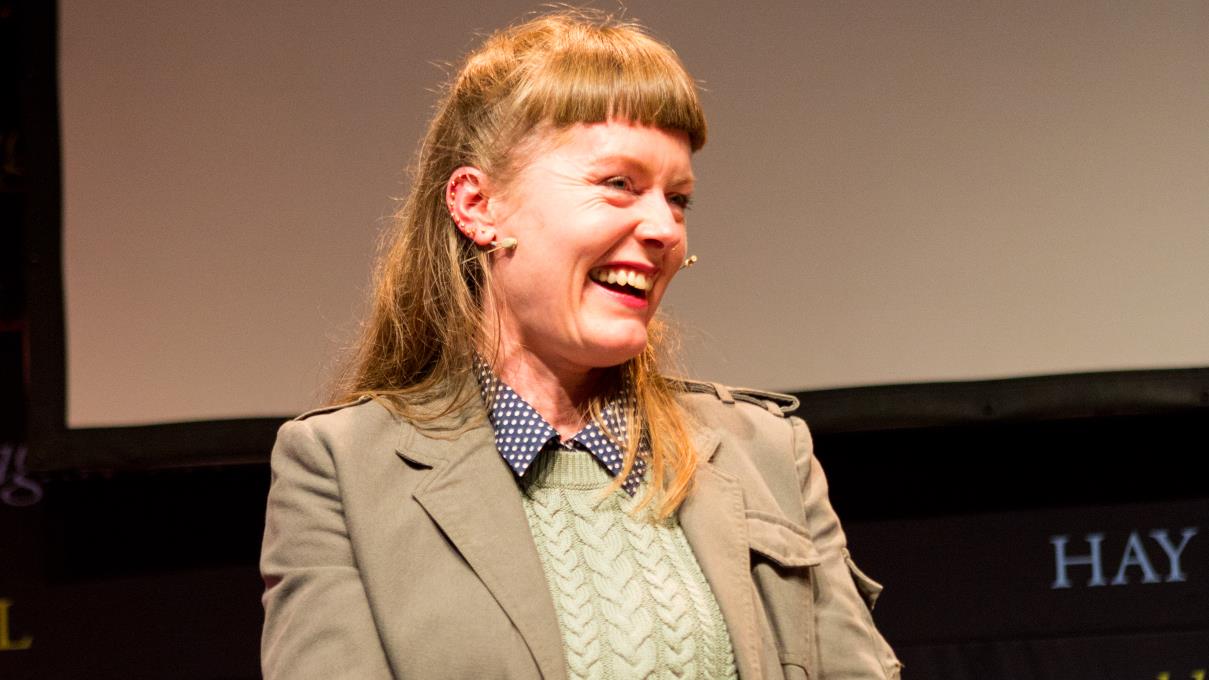
H(A)PPY, Nicola Barker’s 12th novel, won the 2017 Goldsmith’s Prize. The award celebrates literature that “breaks the mould or extends the possibilities of the novel form”.
“I never set out to do something unusual, it’s just an accident” Barker said about her writing today. “It’s sort of bizarre that it’s considered innovative … it just indicates how old-fashioned writing in book form is”.
The book is published in colour and Barker used a huge number of different typographic fonts. She described the issues with the book’s design, and said “The book, I’m sure, will make no money at all” due to the cost of publishing in colour. Other unusual design features include symbols overlaying sections of text, blank pages expressing self-censorship and colour to express emotion.
She describes H(A)PPY as a post-post-apocalyptic novel. “It is actually completely mad”, she said. “I write about things I don’t understand”, and the author couldn’t recall the complex details of H(A)PPY’s narrative world. For the reader, Barker said, it is “Through struggle and complexity, that’s where transcendence comes”.
She said humans are “creatures of paradox”, and that she embraces paradoxes both in her writing and her life. As a child, “I wanted to be a nun and I wanted to be a go-go dancer at the same time”, and she sustains that contradiction still.
On her writing process, Barker described books like H(A)PPY and The Cauliflower as “interrupting” books which break up others that she finds duller to write. “I really don’t take myself seriously”, Barker said, and she stressed that the book is not a parody of ‘generation snowflake’.
If you missed this you might enjoy Event 458 Fictions: Gnomon, Nick Harkaway on Thursday 31st May at 10am.